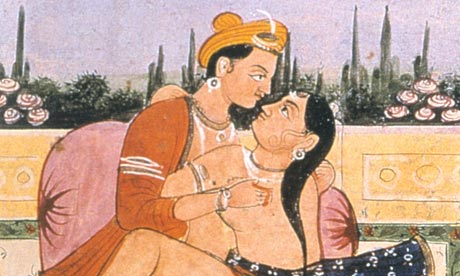
It appears that sex is fun. This may not come as a surprise but, working in sexual health, one can easily become blind to that fact. To work in sexual and reproductive health and rights is to be drip-fed a diet of warnings, doom-laden data on violence, population and epidemics; no wonder we have forgotten a central truth about sex – namely that it is pleasurable.
The idea of pleasure and confidence in your sexual life is not a new concept for us at IPPF (the International Planned Parenthood Federation). In 1998, we enshrined the concept of respect and pleasure in our youth manifesto, based on core values of respect for diversity, informed choice and freedom of sexual expression and sexual enjoyment. And then more recently in Healthy, Happy and Hot – a young person's guide to rights, sexuality and living with HIV – where IPPF had the courage to suggest that young people living with HIV could also live healthy and sexually fulfilling lives.
Now it seems the development community has caught up. The discussion around the new sustainable development goals – replacing the millennium development goals – are forcing us to re-examine the issue of sexual health and rights as the key to alleviating poverty and empowering women.
There is growing evidence that promoting pleasure alongside safer sex messaging can increase the consistent use of condoms and other forms of safer sex. With this in mind, IPPF is beginning to reframe the debate on sexual rights, health in terms of pleasure and confidence.
This new, pleasure-positive approach couldn't have come at a more crucial time. There is now general agreement that sustainable goals for alleviating poverty and encouraging lasting development depend on empowering women. Women's ability to contribute to their communities and economies depends on empowerment, confidence and equality. Sexual confidence, negotiation, collaboration and pleasure are all pivotal in building gender equality and ending gender and sexual discrimination.
So sex confidence is empowering. It's not just about not getting pregnant or avoiding an STI (sexually transmitted infection), it's about being comfortable with yourself, feeling accepted and accepting your partner, treating the other person as a person and not a body. It's about being confident and enjoying our bodies, having fun and not being forced into having sex when we don't want to; about using education and information to reinforce positive messages about safer sex, so that people of all ages can enjoy it when they feel the time is right.
Western-led discussions of sexual health have majored on facts, dire data and warnings, and what not to do. We can help construct a sex-positive language by talking about sex in our homes and families. It doesn't have to be the "big talk" about sex; much better to start an open, ongoing topic. Evidence shows that if you talk to teenagers about sex and relationships, they'll feel less pressure to have sex, which means they're more likely to wait.
The reproductive health community needs to take some of the blame here, being curiously silent on the subject of pleasure. Last year's Family Planning Summit in London made no reference or mention of it. If pleasure is the goal of our sexual lives, discussion of pleasure is clearly key to encouraging safer behaviours.
The generation of young people we want to reach with safer sex messages are inundated by the language and drama of love in films, song lyrics and soaps, yet most formal education literature has all the eroticism of a car manual. Between the medicalised world of sexual health and the commercialised world of the sex industry, we have lost sight of the messy, emotionally-charged reality of sex.
We need to find a more positive way of looking at sex that promotes sexual pleasure, not as a side-issue but as a way to re-engage with our audience – a chance to make our messages about sexual rights sexual and safety more effective.
The Pleasure Project has started the ball rolling by mapping initiatives around the world that use pleasure as the primary motivation for promoting sexual health, including working with Catholic churches in South Africa to improve sex among married couples and using the Kama Sutra to spread safe sex messages in India.
There's a long way to go. A report in the Lancet noted obstacles to condom use including the extra effort needed, embarrassment and the perception of reduced pleasure.
The Bill and Melinda Gates Foundation has issued a call to develop "the next generation of condom that significantly preserves or enhances pleasure, in order to improve uptake and regular use".
The community and governments are waking up to the fact that recognising and promoting pleasure and confidence in sex is vital to achieving development goals. That's undoubtedly good news, but, meanwhile, let's not forget that it's something to be sought and celebrated as an end in its self.
Doortje Braeken is IPPF's senior adviser on adolescents and young people, responsible for co-ordinating programmes in 26 countries implementing a rights-based approach to youth friendly services and comprehensive sexuality education.

